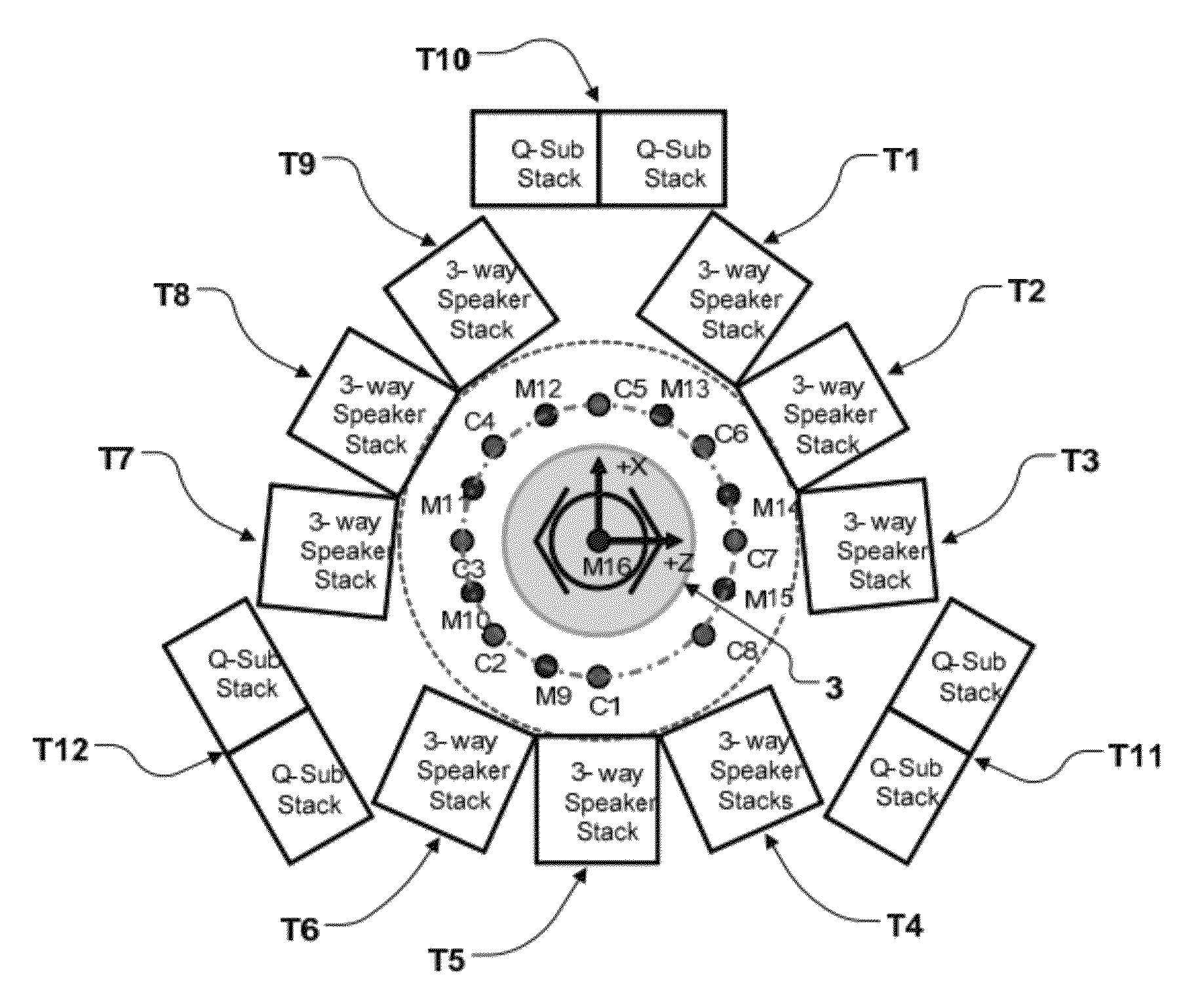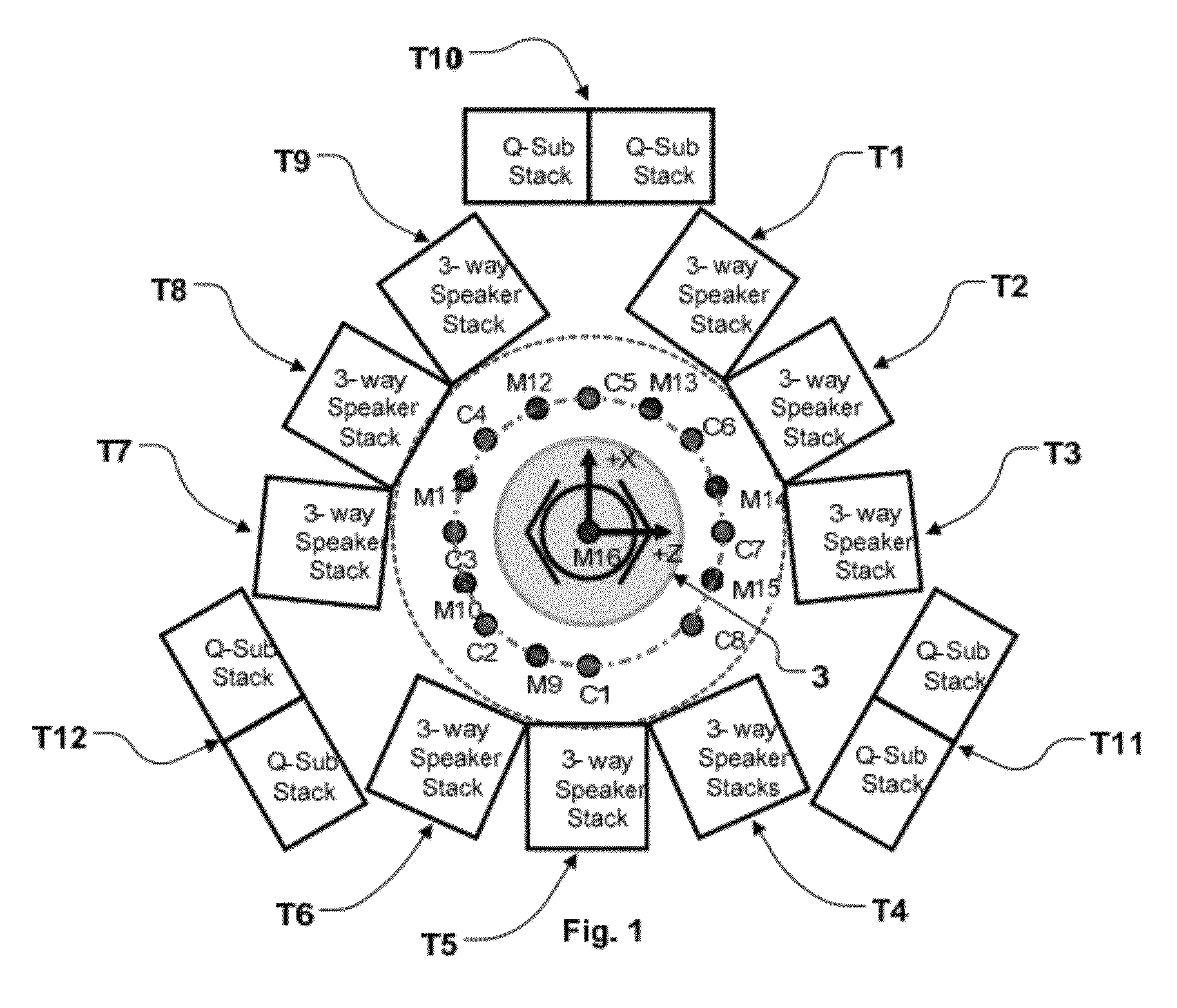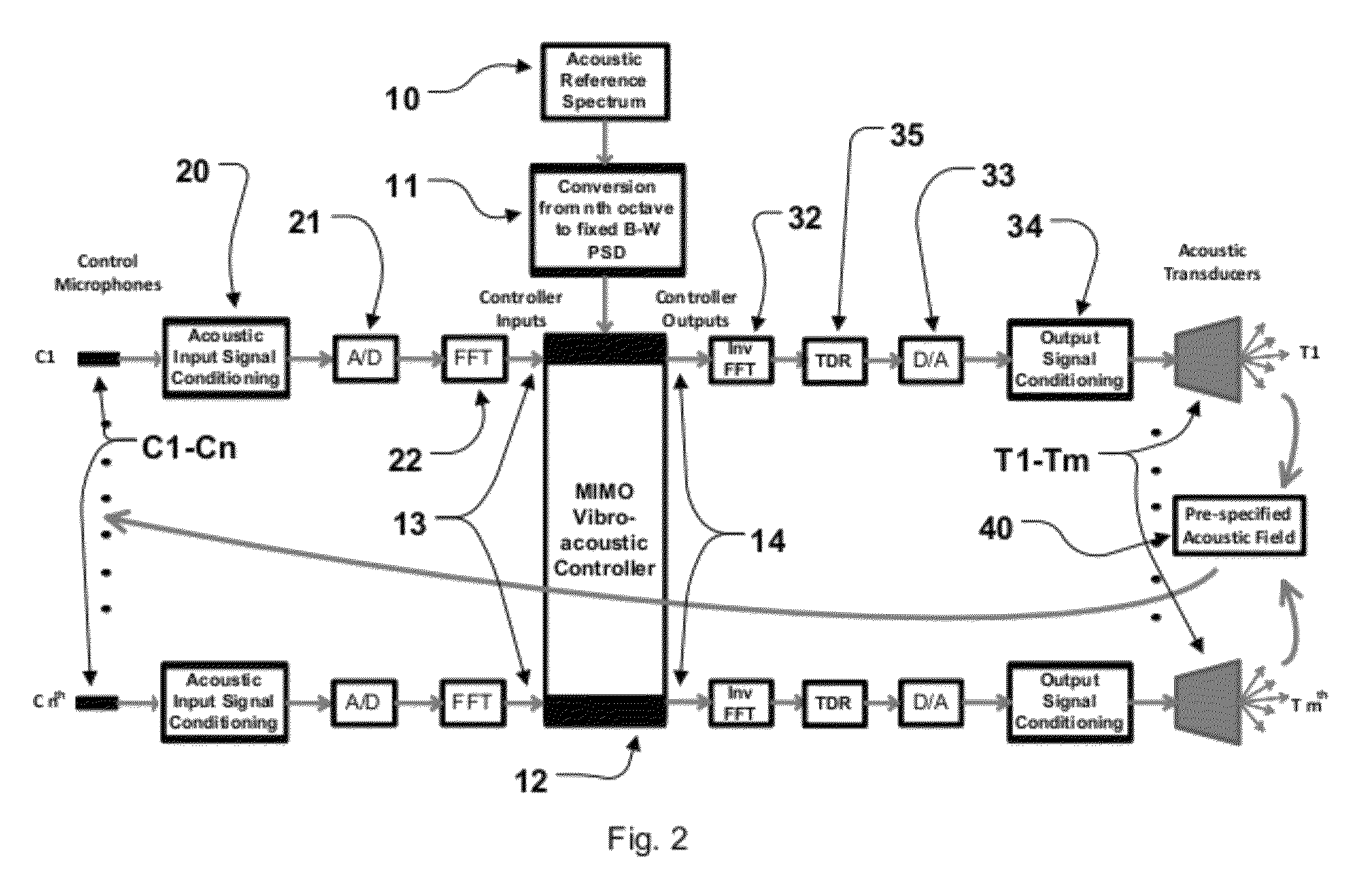Direct field acoustic testing system and method
a testing system and acoustic technology, applied in the field of vibration testing, can solve the problems of high vibration, mechanical stress and other extreme conditions, and many complex items such as satellites or other instruments are subject to high vibration, and achieve the effect of more stable and accurate control
- Summary
- Abstract
- Description
- Claims
- Application Information
AI Technical Summary
Benefits of technology
Problems solved by technology
Method used
Image
Examples
Embodiment Construction
[0028]Embodiments hereof are now described with reference to the figures where like reference characters / numbers indicate identical or functionally similar elements. While specific configurations and arrangements are discussed, it should be understood that this is done for illustrative purposes only. A person skilled in the relevant art will recognize that other configurations and arrangements can be used without departing from the spirit and scope of the invention.
[0029]Referring to FIG. 1, an embodiment of a DFAT system includes a transducer array composed of electro-dynamic acoustic sources or transducers T1-T12 covering various frequency ranges arrayed around the unit-under test (UUT) 3 in a generally circular arrangement as shown. The transducer array in the embodiment shown is composed of twelve groups T1-T12 of eight transducers, of which nine groups T1-T9 are three-way electro-dynamic loudspeaker systems generally covering the frequency range above 100 Hz and three groups T1...
PUM
| Property | Measurement | Unit |
|---|---|---|
| frequencies | aaaaa | aaaaa |
| frequencies | aaaaa | aaaaa |
| frequency | aaaaa | aaaaa |
Abstract
Description
Claims
Application Information
 Login to View More
Login to View More - R&D
- Intellectual Property
- Life Sciences
- Materials
- Tech Scout
- Unparalleled Data Quality
- Higher Quality Content
- 60% Fewer Hallucinations
Browse by: Latest US Patents, China's latest patents, Technical Efficacy Thesaurus, Application Domain, Technology Topic, Popular Technical Reports.
© 2025 PatSnap. All rights reserved.Legal|Privacy policy|Modern Slavery Act Transparency Statement|Sitemap|About US| Contact US: help@patsnap.com



